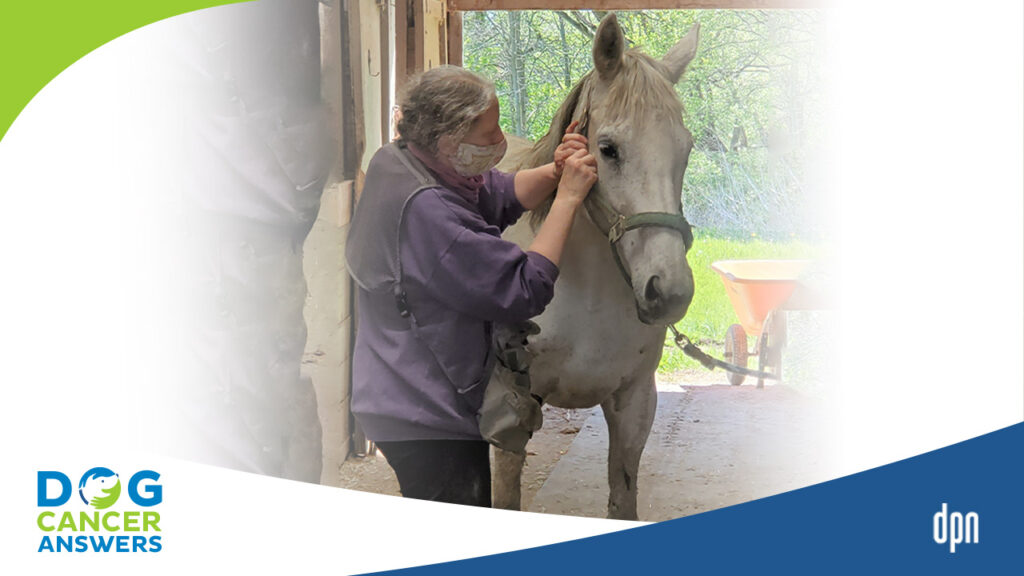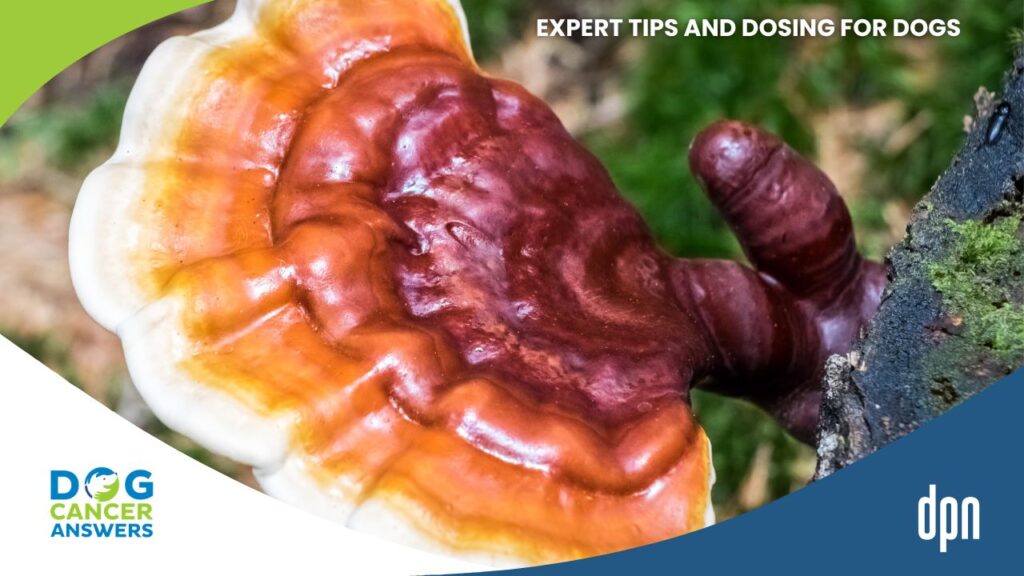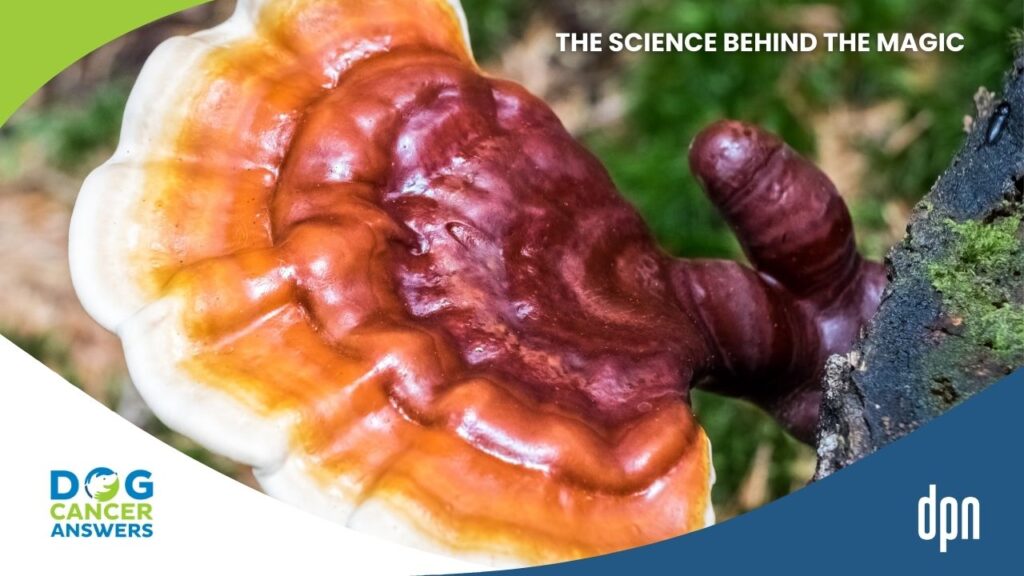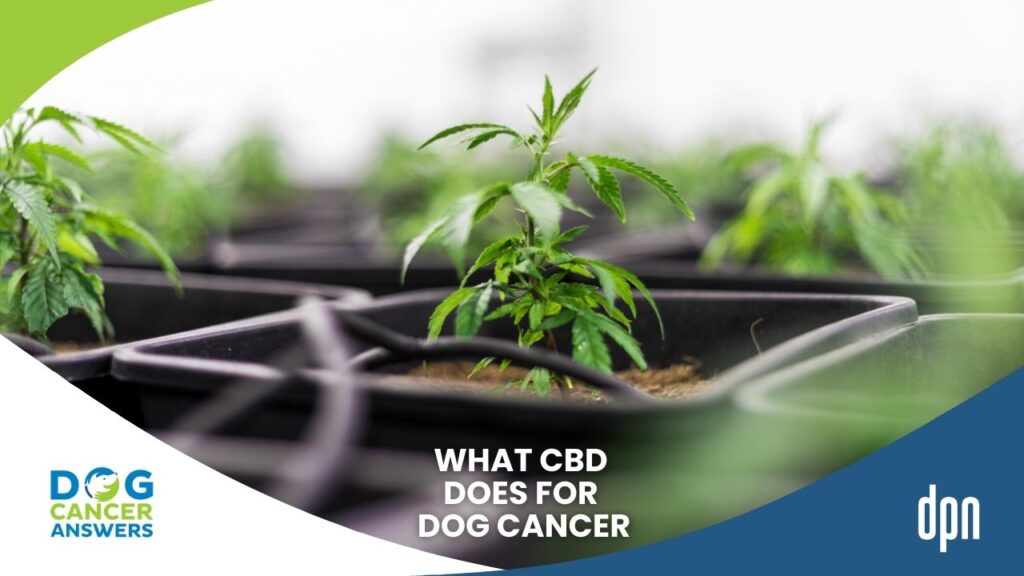EPISODE 136 | RELEASED October 11, 2021
Artemisinin for Dogs with Cancer | Dr. Nancy Reese Deep Dive
Artemisinin started out as an anti-malarial drug, but it has some anti-cancer effects as well, especially for the vicious osteosarcoma.
SHOW NOTES
In this week’s episode Dr. Nancy discusses the herb artemisinin: what it is, what it has been able to do in the lab, and how to discuss adding it to your dog’s treatment plan with your vet. Artemisinin has shown promise in studies as an adjunctive treatment for a variety of cancers, including bone cancer. It targets several of the hallmarks of cancer, has potential to help destroy cancer cells, and may also make cells more sensitive to chemotherapy. There is still work to be done on dosing, as artemisinin has a short half-life which can make it challenging to deliver the compound to the actual cancer cells, but we are learning more about how to give it to get the best results while minimizing side effects. Artemisinin is not a good fit for dogs who are undergoing radiation therapy or have a seizure disorder, but otherwise it is very safe.
Links Mentioned in Today’s Show:
The Dog Cancer Survival Guide: Full Spectrum Treatments to Optimize Your Dog’s Life Quality and Longevity by Dr. Demian Dressler and Dr. Susan Ettinger
[00:00:00] >> James Jacobson: Today’s show is brought to you by the bestselling book, the Dog Cancer Survival Guide: Full Spectrum Treatments to Optimize Your Dog’s Life Quality and Longevity. It’s available everywhere books are sold in both paperback and digital editions and on the publisher’s website at DogCancerBook.com. Use coupon code PODCAST on that website to get 10% off the Dog Cancer Survival Guide today.
[00:00:29] >> Dr. Nancy Reese: So one of the effects with artemisinin is to react with iron and that causes some free radical formation, which damages the cells. Almost all cancers have a higher iron concentration than regular cells, but some certain types of cancers have even more iron than other cancers. So the osteosarcoma, at least in the dog cell lines that they’ve looked at, have a particular high iron receptor on the cells.
[00:00:57] >> Announcer: Welcome to Dog Cancer Answers, where we help you help your dog with cancer.
Here’s your host, James Jacobson.
[00:01:05] >> James Jacobson: Hello friend. Sometimes in medicine we discover that a medication that was designed for one purpose is also helpful in other ways. One of those multi-purpose remedies is artemisinin, which originally became famous for treating malaria. Well, it turns out that artemisinin is also helpful in the fight against cancer.
Joining us today is our chief medical editor, Dr. Nancy Reese. Nancy has been a practicing veterinarian for over 30 years and also has a Master’s Degree in Preventative Veterinary Medicine and a PhD in Epidemiology. Dr. Nancy, once again, thank you so much for joining us on Dog Cancer Answers.
[00:01:49] >> Dr. Nancy Reese: Well it’s nice to be here, life seems to be returning to a little more normality and it’s, it’s great to be back to regular activities.
[00:01:57] >> James Jacobson: It is nice to talk about things that, you know, aren’t necessarily all COVID, all the time. And that’s actually what we’re going to talk about on today’s show. We’re going to talk about artemisinin, which is something that Dr. Dressler talks about in the Dog Cancer Survival Guide. And he recommends it particularly for sarcomas, especially osteosarcoma, and he suggests this certain rotation of five days on, five days off. And it’s in the nutraceutical chapter, which I think is Chapter 12 for the book. But since the book came out a few years ago, there has been so much widespread use of artemisinin, and so I wanted to get your take on it, ’cause I know things are constantly evolving in veterinary medicine. And what are your thoughts about artemisinin?
[00:02:45] >> Dr. Nancy Reese: Well you’re certainly right about things constantly changing and in any medication or anything that we ever talk about, whether it’s alternative, natural, or drug related, it’s hard to keep up with the many changes that happen in dosing suggestions, particularly depending on what source you look at.
It’s pretty fascinating. In fact, um, originally it started out as an anti-malarial drug, and I think it was 2015 that the Nobel prize in physiology or medicine, I can’t remember which, but the Nobel prize went to somebody who discovered the agent artemisinin that is in the silk wormwood plant. So it’s one particular species of wormwood plant that has this agent, so not all types of wormwood have it. But the one particular strain does have the artemisinin in it. And it was originally developed as an anti-malarial drug, and then through usage and, I guess, laboratory testing, they started to find some anti-cancer benefits by using it as well.
[00:03:44] >> James Jacobson: Is it one of those things that basically it started just as a natural remedy and then turned into a drug?
It sounds like, in terms of anti-malaria.
[00:03:55] >> Dr. Nancy Reese: Yes, yes. You know, how they first discovered using it, I mean, I’m always fascinated by who the first person that tries any substance for something. I mean, the odd pathways have to be a, strange ways that people find things out. But yeah. So I think it was more of a, you know, sort of, uh, trying something out, found out that it worked on malaria, and then maybe based on the mechanisms that it worked against the malaria, they started testing it in cancer cells and things. They’ve since the discovery of the one particular thing, the artemisinin, they’ve come up with some derivatives of it that are probably a little bit more effective in terms of treating things like cancer.
So they have some sort of synthetic versions of artemisinin that might be a little bit more potent.
[00:04:40] >> James Jacobson: And is it considered a drug or an herb at this point, especially as it’s used for dog cancer?
[00:04:46] >> Dr. Nancy Reese: I would say the artemisinin itself is more of an herb, but the derivatives could kind of be considered a drug, although they aren’t FDA regulated or anything like that.
But the derivatives tend to be formed in a mixture, and it’s going to be a little bit more consistent dosing than just taking a straight herbal preparation of the pure artemisinin.
[00:05:07] >> James Jacobson: So it’s more standardized than many natural products are.
[00:05:11] >> Dr. Nancy Reese: Right. And that makes dosing a little bit more, well, I hate to say it’s straightforward because it really isn’t, but you know, if you have a synthetic thing, you know exactly how much is going in there and it might be a little bit easier to get a "exact dose".
[00:05:24] >> James Jacobson: So let’s talk a little bit about the dosing, because in Dr. Dressler’s book, in the Dog Cancer Survival Guide, he says to basically do the five day on, five day off rotation. That’s not the case anymore. The break doesn’t necessarily make as much sense as it once did. Is that right?
[00:05:43] >> Dr. Nancy Reese: I think that’s true. As more people have studied it, and when, when looking at studies, the dosage ranges are quite dramatically different, but in most studies – there was one in particular that looked at a high dose for a short period of time and then taking off, versus a low dose consistently, and there was really no difference in whether they were dosed consistently or had higher doses for short term. But they did have a little bit more side effects at the higher dose for the short term, so most recommendations are now to give it consistently for at least a period of say eight weeks. And then if it’s effective, you could potentially try dropping it down to an every-other-day dosing, but it really depends on the particular product, and honestly, between the particular person prescribing it.
[00:06:30] >> James Jacobson: What cancers benefit from artemisinin?
[00:06:33] >> Dr. Nancy Reese: So one of the mechanisms they think that it has for anti-cancer effect is related to the amount of iron that’s in the cancer cells. So one of the effects with artemisinin is to react with iron, and that causes some free radical formation, which damages the cells. Almost all cancers have a higher iron concentration than regular cells, but some certain types of cancers have even more iron than other cancers. So the osteosarcoma, at least in the dog cell lines that they’ve looked at, have a particularly high iron receptor on the cells. They have a lot of the enzyme that brings the iron into the cell, and rapidly dividing cells need more iron. So osteosarcoma is certainly one that it seems to have a good effect.
In a lot of the test tube or laboratory studies they’ve looked at, let me see if I can remember these, um, breast cancer, rectal cancer, prostate cancer, kidney cancer, I believe melanoma, and the osteosarcoma. I think those are kind of the top ones that have been studied and artemisinin seems to have a pretty good effect in test tubes against all those cell lines.
[00:07:46] >> James Jacobson: Are there cancers that should avoid using artemisinin? Obviously this is not appropriate for all cancers.
[00:07:54] >> Dr. Nancy Reese: Very few contra-indications, or ones that it wouldn’t help somewhat, but they do say anything that involves radiation within several months should not have artemisinin.
And then there also might be if the animal happens to be on a seizure drug, whether it’s related to its cancer or not, probably should not have the artemisinin, because there does seem to be an interaction there.
[00:08:17] >> James Jacobson: We’re going to take a short break here, and when we return, we’re going to get into how to talk to your veterinarian about trying artemisinin with your dog.
We’ll be right back.
And we are back with Dr. Nancy Reese, discussing artemisinin for dogs with cancer. Is your experience that most veterinarians, like, know about and use artemisinin, or is it still sort of undiscussed things in most vet circles?
[00:08:47] >> Dr. Nancy Reese: I would definitely put it in the undiscussed things, yes. And it really, it seems like it has a lot of potential, there’s even been some work that showed that it may sensitize some of the cancer cells to become less resistant to the chemotherapies that they’re on. So a nice adjuvant or additional treatment that might prevent the cells from getting resistant to the chemotherapy, which seems to happen a lot in the cancer.
So it would be nice if it was more widespread usage so that we could better refine what it’s going to be good for and not.
[00:09:21] >> James Jacobson: Why do you suppose it is not more readily known, and why do you suppose, you know, vets aren’t using it more frequently?
[00:09:29] >> Dr. Nancy Reese: Well, I always hate to say it, but the, anything that starts from kind of the alternative realm… sometimes it was looked – "looked down upon" is probably too strong of a word, but traditional veterinarians, Western veterinarians, are so used to: I want a really good clinical study where you give me X dose in this particular type of cancer, and it works X percent of the time. Things that come out of the, again, the sort of the more natural and alternative, they often don’t have that specific correlation because it’s, it’s something like, well, I’ve used it in 20 different kinds of cancers and some of them respond. It’s just not as controlled of a study that traditional vets then, they just can’t take it as, as solid evidence and it’s really hard to get it accepted use without those really good studies. Which people are working on, but they just haven’t really come out yet.
[00:10:22] >> James Jacobson: Is there pharmaceutical companies behind the studies, or is it the universities, or who’s doing the studies?
[00:10:27] >> Dr. Nancy Reese: That’s a good question, because I did look up at the, um, I think it’s the NIH that has clinicaltrials.gov, and there are a huge number of studies that list artemisinin as a subject of interest.
So there’s definitely a lot of focus on it. But unfortunately, a lot of those studies never come to light. Because I think I found one statistic that said out of 920 clinical studies on different agents, only 32 ended up having results that were published. So you can have, you know, a huge number of interest in artemisinin or any substance like that, but the trials may never make it to clinically useful information. But again, it does suggest that there is a lot of interest out there.
[00:11:14] >> James Jacobson: So Dr. Nancy, how much does artemisinin cost roughly?
[00:11:18] >> Dr. Nancy Reese: It can always depend on the type of product you get. And that’s one of the things that I have, or an issue that we have with any naturally derived product, is the quality of the product.
So it’s not regulated or anything else – you’re going to get what you pay for sometimes, or you might pay for something that has nothing in it. So it’s a little bit hard, but typical bottles that I was looking at, anywhere from $20 to $75 for a product. I think I looked on Amazon. And you might end up going through two bottles a month.
So it would be a fairly inexpensive, depending on your point of view, product to use as an adjunctive treatment to any kind of cancer therapy.
[00:11:57] >> James Jacobson: So as an adjunct, do you think that artemisinin is worth it?
[00:12:01] >> Dr. Nancy Reese: I think it really seems to have some potential. I mean, I just love the idea that it maybe will make cells more sensitive to the chemotherapies that they’re on. Or, even by itself it seems to, in addition to the iron free radical formation effect, they’ve discovered that in some cancer cell lines it helps to induce apoptosis, reduces blood vessel formation to help reduce the spread, decreases the cell signaling that’s so important in cancer cells. So it seems to have, it almost hits all those classic hallmarks of cancer that Dr. Dressler talks about in the book. Artemisinin seems to have some effect on almost all of those very important cancer pathways. So I really think it’s an exciting adjunctive treatment in addition to maybe having some primary anti-cancer effects in itself.
[00:12:53] >> James Jacobson: So for listeners who are thinking now, I would like to add this as part of my protocol, and they talk to their vet about artemisinin and the vet says, I don’t know, Art, who is Art missing? Um, how do you guide your vet through that conversation?
[00:13:11] >> Dr. Nancy Reese: So, first thing I guess I would ask is if the person asking, the person with the dog with cancer, or the vet themselves, if they know of a holistic vet that they both work with.
I mean that’s really nice to have that conversation with somebody that routinely prescribes it. ‘Cause a lot of traditional Western vets might say, I don’t know anything about that, I wouldn’t use it because it’s not standard. But if they have a good relationship with a holistic vet or the dog guardian can reach out to a holistic vet and have that conversation, you know, that way they can be aware of any potential interactions or experience with it.
I like to think that vets are becoming more open-minded about combining that stuff, especially when there really is a lot of, there’s a lot of papers out there that describe the low toxicity of artemisinin and the potential benefits. So I think the information is out there and we could possibly put a list of links of papers or things that a listener could potentially bring to their vet saying, see, this is why I want to use it: it’s safe, it might have these effects, and there’s really minimal downsides to using it.
[00:14:22] >> James Jacobson: We will do that.
We’ll add that link in the show notes, and I know that you’re working on a white paper for the next update for the Dog Cancer Survival Guide that will help veterinarians understand a little bit more about things like artemisinin.
[00:14:35] >> Dr. Nancy Reese: Yeah, I think it’s easy, it’s nice to have readily accessible things so that somebody doesn’t have to, I hate to say this, but doesn’t have to go looking on their own.
[00:14:43] >> James Jacobson: Right, and then they can click the links and then read about it-
[00:14:46] >> Dr. Nancy Reese: Right.
[00:14:47] >> James Jacobson: -through the NIH repository and learn about it and think, well, you know, this is not snake oil, there may be something to it.
What else do we need to understand about artemisinin?
[00:14:57] >> Dr. Nancy Reese: One of the issues with artemisinin in general, it doesn’t last in the body very long. So it has what’s called a short half-life. So you can take it, but the levels in your bloodstream are going to go down very quickly. It also has pretty low absorption or "bioavailability," meaning that you ingest it and then it doesn’t necessarily get to where it needs to go. So there is development of something called a nano drug, or a carrier type of thing to increase that absorption, and other studies are looking at using it in some injection form. So oral is always nice because everybody would rather treat their person or animal at home, but we need to find ways to make it more absorbable and available.
[00:15:42] >> James Jacobson: Well Dr. Nancy, this has been fascinating. I think that the more we look at the full spectrum of things that are available to helping folks care for dogs with cancer, the better. And I appreciate you spending some time with us today to talk about artemisinin.
[00:15:57] >> Dr. Nancy Reese: All right, well I definitely agree it’s a part of that full spectrum care, and I think it’s got a lot of potential use out there.
[00:16:06] >> James Jacobson: Dr. Nancy, thank you. And I want to thank you listener. Please check out the show notes for all the links and resources mentioned in today’s episode, including where to find the book the Dog Cancer Survival Guide. For additional information, I hope you will subscribe to our newsletter, which is called Dog Cancer News, and you can go to the website DogCancerNews.com to sign up. That’s DogCancerNews.com. If you have a dog with cancer and could use some support, I would encourage you to join our incredibly friendly, useful, and just like feel-good community on Facebook. And you can find that by typing in the URL DogCancerSupport.com. That will direct you straight into that Facebook group.
Again, the URL is DogCancerSupport.com. Well, thanks for hitting that play button today. If this information was helpful, please do us a favor and tell a friend about Dog Cancer Answers. Perhaps share it on social media. This show might just be what your friend or your friend’s friend needs to hear since cancer is so prevalent these days in dogs. Also, please consider telling your veterinarian and your veterinarian office about Dog Cancer Answers.
I’m James Jacobson, on behalf of all of us here at Dog Podcast Network, we wish you and your dog, a very warm Aloha.
[00:17:36] >> Announcer: Thank you for listening to Dog Cancer Answers. If you’d like to connect, please visit our website at DogCancerAnswers.com or call our Listener Line at (808) 868-3200. And here’s a friendly reminder that you probably already know: this podcast is provided for informational and educational purposes only. It’s not meant to take the place of the advice you receive from your dog’s veterinarian.
Only veterinarians who examine your dog can give you veterinary advice or diagnose your dog’s medical condition. Your reliance on the information you hear on this podcast is solely at your own risk. If your dog has a specific health problem, contact your veterinarian. Also, please keep in mind that veterinary information can change rapidly.
Therefore, some information may be out of date. Dog Cancer Answers is a presentation of Maui Media in association with Dog Podcast Network.











